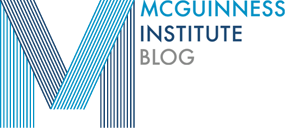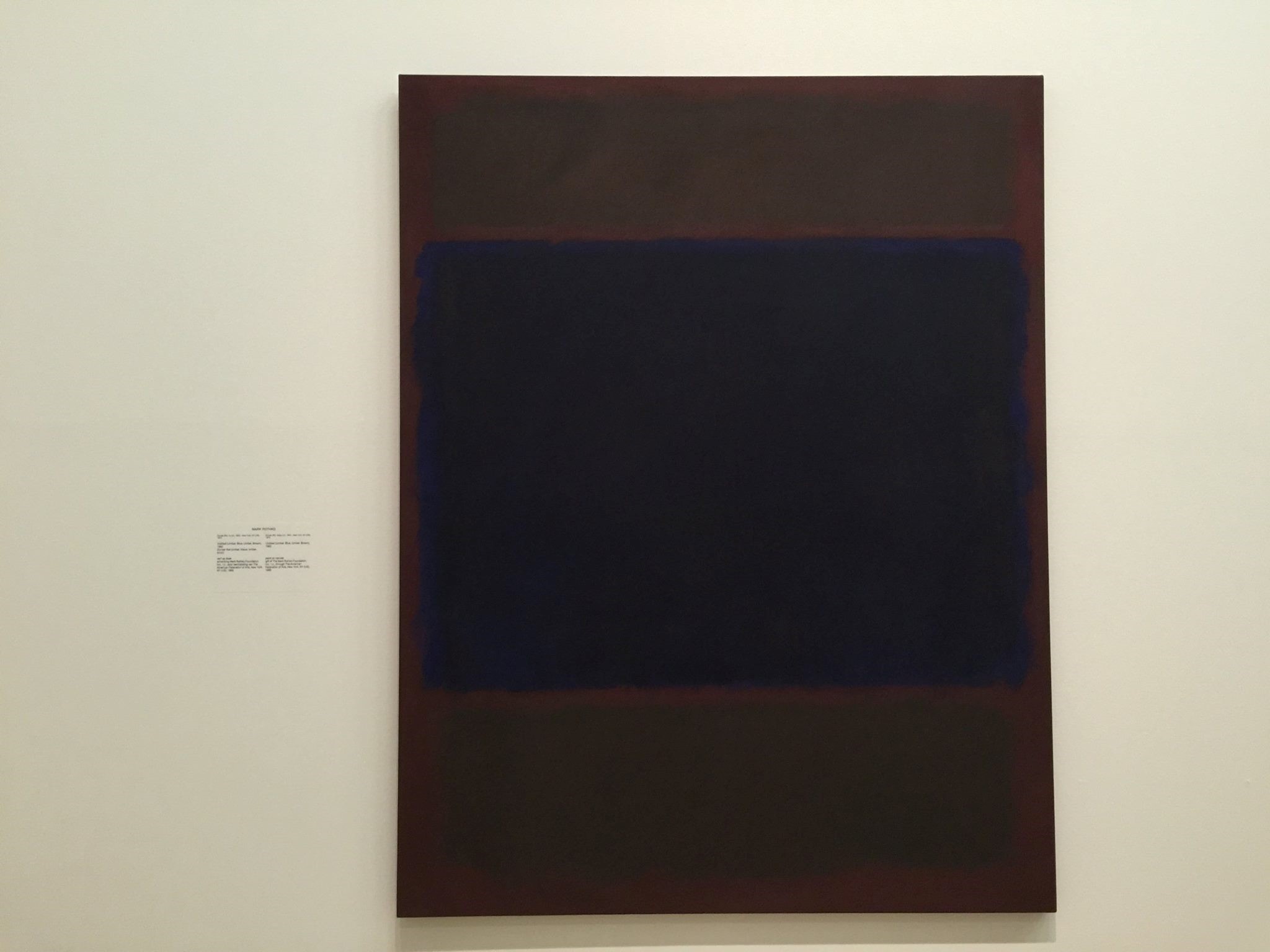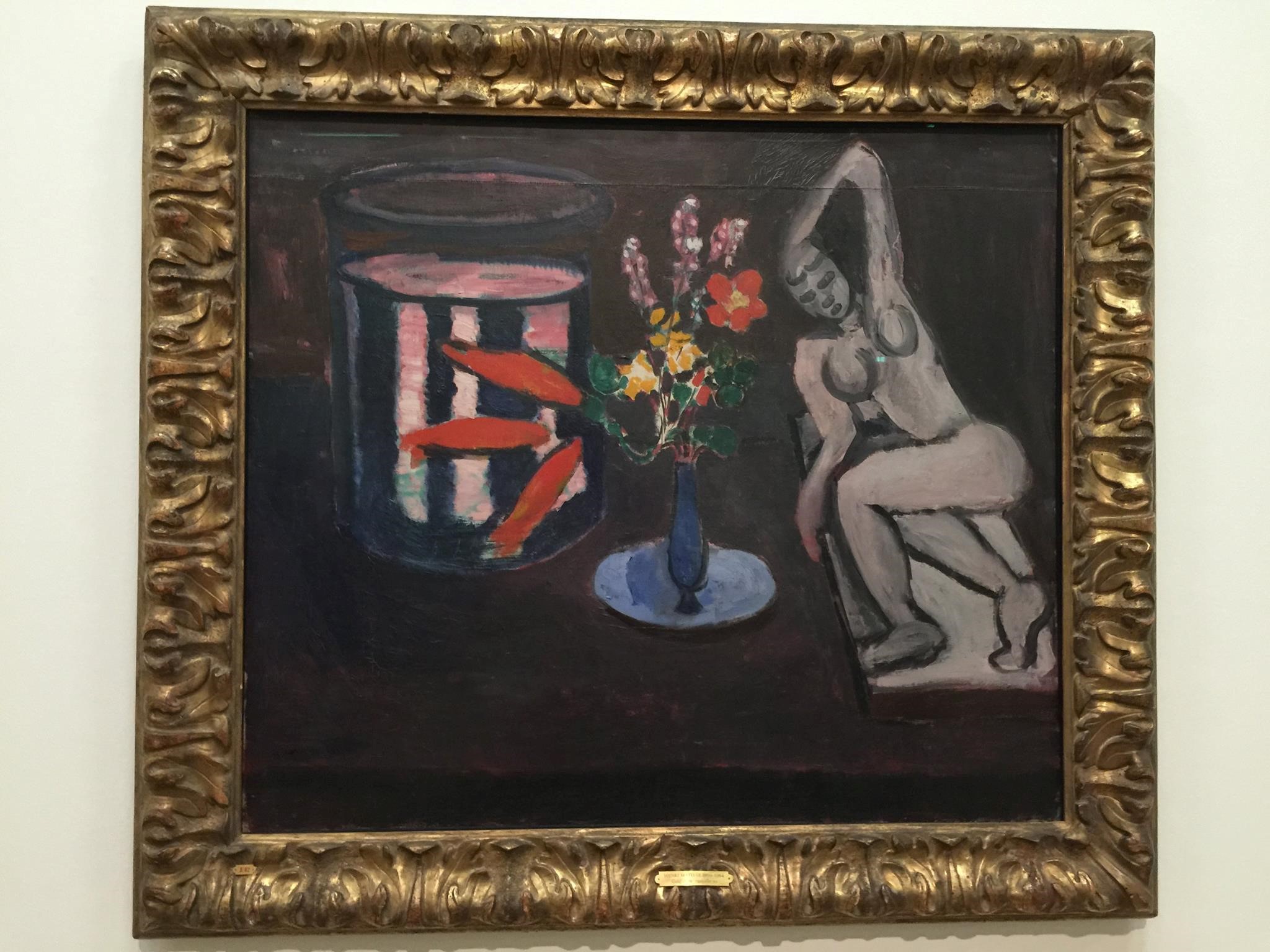How quickly the meanings of words change. Two examples were apparent at the World Futures Conference held in San Francisco.
‘Hacking’ is no longer a negative pursuit. Instead, to be a hacker can be positive, as explained to me by three young designers and futurists that asked twenty participants to ‘hack’ a futures game they had designed. Their goal was for us to revisit the components of the game and turn them on their heads, removing some components and even adding others, to see what innovative ideas and observations eventuated. They explained that nothing is really new now, but new combinations of existing components do exist. Hacking is about trying to find these. It is no longer about IP but about making the best combination. They said that to copy, and recognise you are copying, is to compliment your predecessors – as in their view everyone has always copied everyone else.
This is not a new idea – as the two pictures below from a gallery in Amsterdam testify. Rothko is one of my favourite artists and here you can see a picture he produced that hacks the colour palette of a work by Matisse. These pictures are from the contemporary art gallery in Amsterdam known as the Bathtub. In terms of public policy, you could argue that any open and explorative revisiting of a current system is a form of hacking. For example, the Institute is currently hacking the strategy reporting system in central government through the StrategyNZ project.
‘Friction’ has been about what happens when you rub two hard surfaces together – think sand paper on wood. More recently it has been used to describe relationships between two people, and at the conference the word was often used in terms of discussing ways to decrease friction between the service provider and the service recipient – usually by improving the technology interface. At one level this is great; people working hard to make my life easier is a great thing (I hate queues, administration and doing annoying tasks). However, what hit me while travelling was all the good things that come from friction. Queues, plane delays, a lack of language skills, and asking people for directions provide a good excuse to connect, take time to observe and reflect, find out more about people and learn more about the world they live in. So if we are all working hard to create a world without friction, we might need to also work hard to establish new ways to connect unexpectedly and discipline ourselves to take time to think and reflect about our world. ‘Connect’ is one of the workstreams of the Institute’s TalentNZ project – ‘creating a place where talent wants to live’ – but what I have realised while travelling is the benefit of connecting with people you might not normally connect with – hope that makes sense.























![20160906 McGuinness Institute - TacklingPovertyNZ Workshop – Far North Flyer [FINAL]](/wp-content/uploads/20160906-McGuinness-Institute-TacklingPovertyNZ-Workshop-%E2%80%93-Far-North-Flyer-FINAL-1-50x50.png)